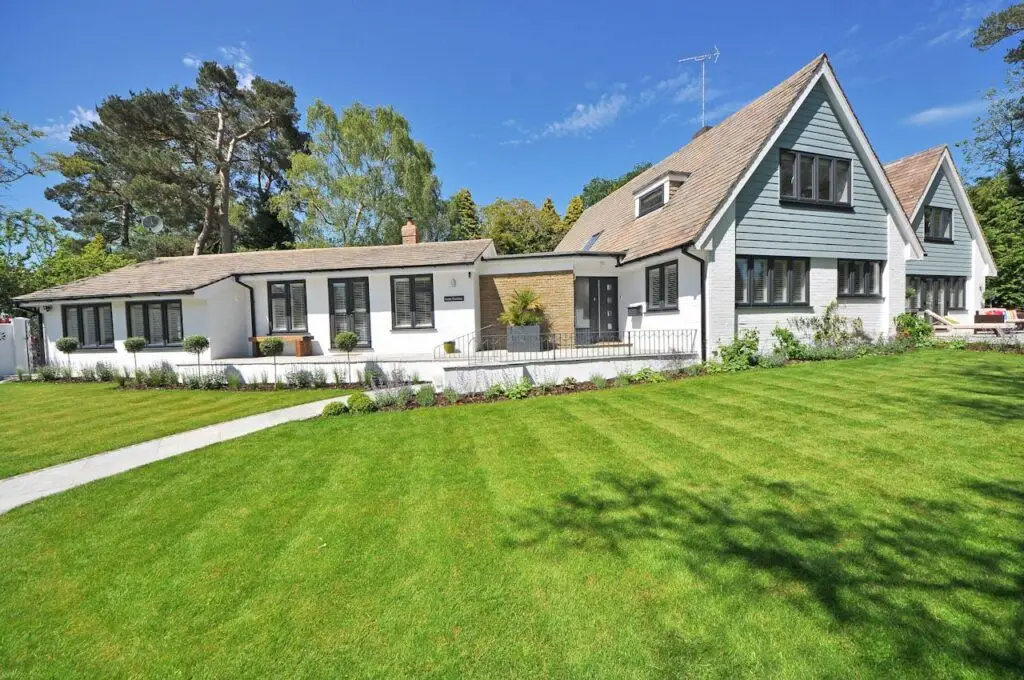Love The Home, Date the Rate. Your Home is a Long-Term Investment, Your Mortgage Rate Doesn’t Have to Be.
Buying a Home: A Smart Financial Decision.
Buying a home is one of the most significant financial decisions you will make in your life. It’s a journey that involves not just financial readiness but emotional preparedness as well. Many potential homebuyers find themselves stuck in a dilemma: should they wait for mortgage rates to go down, or should they buy now despite higher rates? This is a common question, especially in a fluctuating market where rates can seem unpredictable.
The answer to this question lies in a simple yet powerful mantra: “Marry the home, date the rate.” This phrase encapsulates the idea that while your home is a long-term investment, your mortgage rate doesn’t have to be. You can always refinance your mortgage when rates drop, but the opportunity to buy your dream home at a reasonable price may not come around again. In this blog, we will delve into why you should not wait for rates to go down before buying a home, the benefits of refinancing, and how market dynamics can impact home prices.
The Cost of Waiting
Market Dynamics: The Unpredictability of Home Prices
The housing market is subject to the basic laws of supply and demand. When mortgage rates are high, some buyers may pull back, reducing demand. However, if too many buyers sit on the sidelines waiting for rates to drop, a pent-up demand can form. Once rates do drop, this demand can surge, driving home prices higher.
Historically, when interest rates decline, the real estate market often sees an increase in home prices due to the influx of buyers trying to capitalize on lower rates. This surge in demand can quickly outstrip supply, especially in areas where inventory is already low. So, while you might secure a lower rate, you could end up paying significantly more for the home itself.
For example, if you wait for mortgage rates to drop by 1%, but in the meantime, home prices increase by 10%, the potential savings from the lower rate could be negated or even overshadowed by the higher purchase price. Therefore, buying now at a higher rate but a lower price could ultimately be a better financial decision.
Inflation and Its Impact on Real Estate
Inflation can also play a critical role in home prices. As inflation rises, the cost of goods and services increases, including the cost of construction materials and labor. This can lead to higher home prices, especially in new construction. Additionally, as inflation drives up costs, the Federal Reserve may raise interest rates to combat it, which can further complicate the timing of your home purchase.
By waiting, you risk being caught in a cycle where both home prices and mortgage rates continue to rise, making it more expensive to buy the home you want. In contrast, buying now allows you to lock in today’s prices, and you can always refinance later if rates decrease.
Inventory Shortages: A Seller’s Market
Many housing markets across the country are experiencing inventory shortages. There are simply not enough homes available to meet the demand of buyers. When interest rates drop, these shortages can become even more pronounced as more buyers flood the market. This increased competition can lead to bidding wars, where buyers are forced to offer significantly more than the asking price to secure a home.
If you wait for rates to drop, you may find yourself in a more competitive market, where you have to pay more for a home or settle for a property that doesn’t fully meet your needs. By purchasing now, you might avoid the frenzy and secure a home that you love at a fair price.
Refinancing: The Flexibility to Adapt
The Refinancing Option: Flexibility in Financing
One of the biggest advantages of buying a home now, even with higher interest rates, is the ability to refinance later. Refinancing allows you to replace your current mortgage with a new one, ideally with a lower interest rate. This can significantly reduce your monthly payments and the total amount of interest you pay over the life of the loan.
When mortgage rates decrease, homeowners who purchased when rates were higher can refinance to take advantage of the lower rates. This flexibility means that you’re not locked into your current rate for the life of the loan. Instead, you can adjust your financing as the market evolves, ensuring that you’re always getting the best possible deal.
Refinancing: A Strategy for Long-Term Savings
Refinancing isn’t just about securing a lower interest rate; it’s also an opportunity to reassess your financial situation and potentially change the terms of your loan. For example, if you initially took out a 30-year mortgage, you could refinance to a 15-year mortgage when rates drop, allowing you to pay off your home faster and save on interest.
Even if rates don’t drop significantly, refinancing can still be beneficial. You might refinance to consolidate other debts, switch from an adjustable-rate mortgage (ARM) to a fixed-rate mortgage for more stability, or even tap into your home’s equity for other financial goals.
The Cost of Refinancing: A Worthwhile Investment
While refinancing does come with some costs, such as closing costs and fees, these are often outweighed by the long-term savings. It’s essential to calculate the break-even point—the time it takes for the savings from the lower rate to cover the costs of refinancing. If you plan to stay in your home beyond this point, refinancing is likely a sound financial decision.
Moreover, many lenders offer no-cost refinancing options, where the closing costs are rolled into the loan balance. This can make refinancing more accessible and reduce the financial barrier to lowering your interest rate.
The Emotional and Practical Benefits of Homeownership
Stability and Security
Homeownership provides a sense of stability and security that renting cannot. When you own your home, you’re not subject to rent increases or the whims of a landlord. Your home is your own, and you have the freedom to make it truly yours, whether that means renovating, landscaping, or simply decorating to your taste.
Waiting for interest rates to drop could delay this sense of stability. In the meantime, you’re continuing to pay rent, which is essentially paying someone else’s mortgage. By buying now, you’re investing in your future and building equity in a property that you can call your own.
Building Equity: A Long-Term Investment
Every mortgage payment you make contributes to building equity in your home. Equity is the difference between what your home is worth and what you owe on your mortgage. Over time, as you pay down your mortgage and your home’s value increases, your equity grows. This equity can be a valuable financial resource, providing you with options for the future, such as funding education, starting a business, or making home improvements.
Renting, on the other hand, does not build equity. The money you spend on rent each month goes directly to your landlord with no long-term financial benefit to you. By purchasing a home now, even at a higher interest rate, you’re starting the process of building equity, which can significantly enhance your financial stability and wealth over time.
Tax Benefits of Homeownership
Homeownership also comes with tax advantages that can make a significant difference in your overall financial picture. Mortgage interest and property taxes are often deductible, which can reduce your taxable income and, in turn, lower your tax bill. These deductions are most beneficial in the early years of a mortgage when interest payments are highest.
While waiting for lower interest rates might seem financially prudent, it could mean missing out on these valuable tax benefits. By purchasing now, you can start taking advantage of these deductions, which can help offset the cost of your mortgage and improve your financial situation.
Conclusion: Seizing the Opportunity
In the end, the decision to buy a home should be based on your personal circumstances, financial readiness, and long-term goals rather than solely on current interest rates. While it’s natural to want to secure the lowest possible rate, the reality is that waiting for rates to drop could result in higher home prices, more competition, and potentially missed opportunities.
By embracing the mindset of “marry the home, date the rate,” you can take control of your homebuying journey. Remember, the home you purchase is a long-term investment in your future, while the interest rate is just a temporary factor that can be adjusted as market conditions change.
The flexibility to refinance means you don’t have to be stuck with today’s rates forever. Instead, you can act now to secure the home you want at today’s prices, build equity, and enjoy the stability and benefits of homeownership. When rates do eventually drop, you can refinance and reduce your costs, but by then, you’ll already be reaping the rewards of owning your home.
So, if you’re in the market for a new home, don’t let interest rates hold you back. The perfect time to buy might just be right now. Marry the home, date the rate, and start building your future today. Call JoJo 478-731-1302


